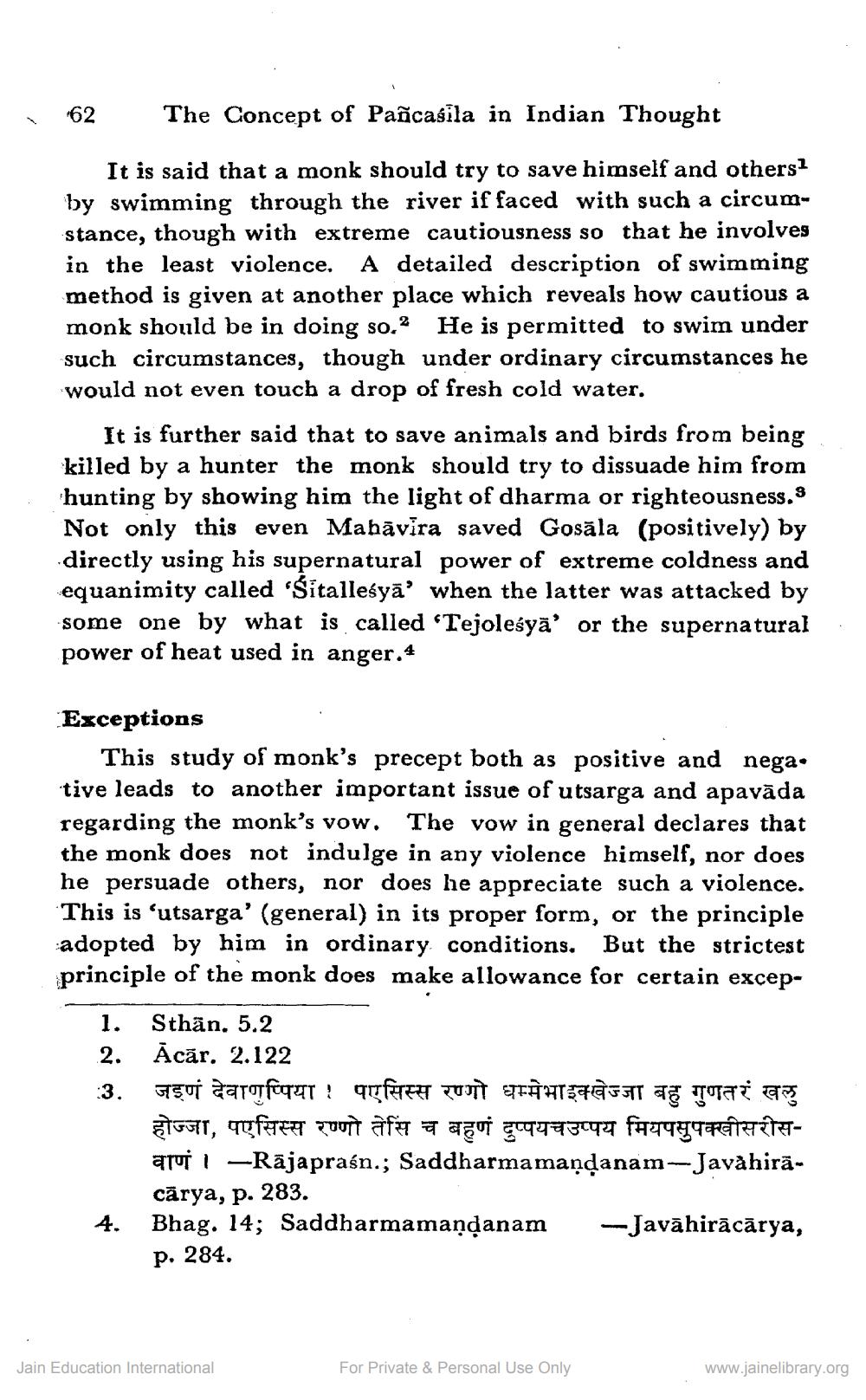________________
62
The Concept of Pancasila in Indian Thought
It is said that a monk should try to save himself and others? by swimming through the river if faced with such a circumstance, though with extreme cautiousness so that he involves in the least violence. A detailed description of swimming method is given at another place which reveals how cautious a monk should be in doing so, He is permitted to swim under such circumstances, though under ordinary circumstances he would not even touch a drop of fresh cold water.
It is further said that to save animals and birds from being killed by a hunter the monk should try to dissuade him from hunting by showing him the light of dharma or righteousness.s Not only this even Mahāvira saved Gosāla (positively) by directly using his supernatural power of extreme coldness and equanimity called 'Śitalleśyā' when the latter was attacked by some one by what is called 'Tejoleśyā' or the supernatural power of heat used in anger.4
Exceptions
This study of monk's precept both as positive and nega. tive leads to another important issue of utsarga and apavāda regarding the monk's vow. The vow in general declares that the monk does not indulge in any violence himself, nor does he persuade others, nor does he appreciate such a violence. This is ‘utsarga' (general) in its proper form, or the principle adopted by him in ordinary conditions. But the strictest principle of the monk does make allowance for certain excep
1. Sthân. 5.2 2. Acăr. 2.122 3. जइणं देवाणुप्पिया। पएसिस्स रण्गो धम्मेभाइक्खेज्जा बहु गुणतरं खलु
होज्जा, पएसिस्स रण्णो तेसिं च बहुणं दुप्पयचउप्पय मियपसुपक्खीसरीसari 1 - Rājapraśn.; Saddharmamanqanam-Javahirā
cārya, p. 283. 4. Bhag. 14; Saddharmamaņdanam -Javāhirācārya,
p. 284.
Jain Education International
For Private & Personal Use Only
www.jainelibrary.org




